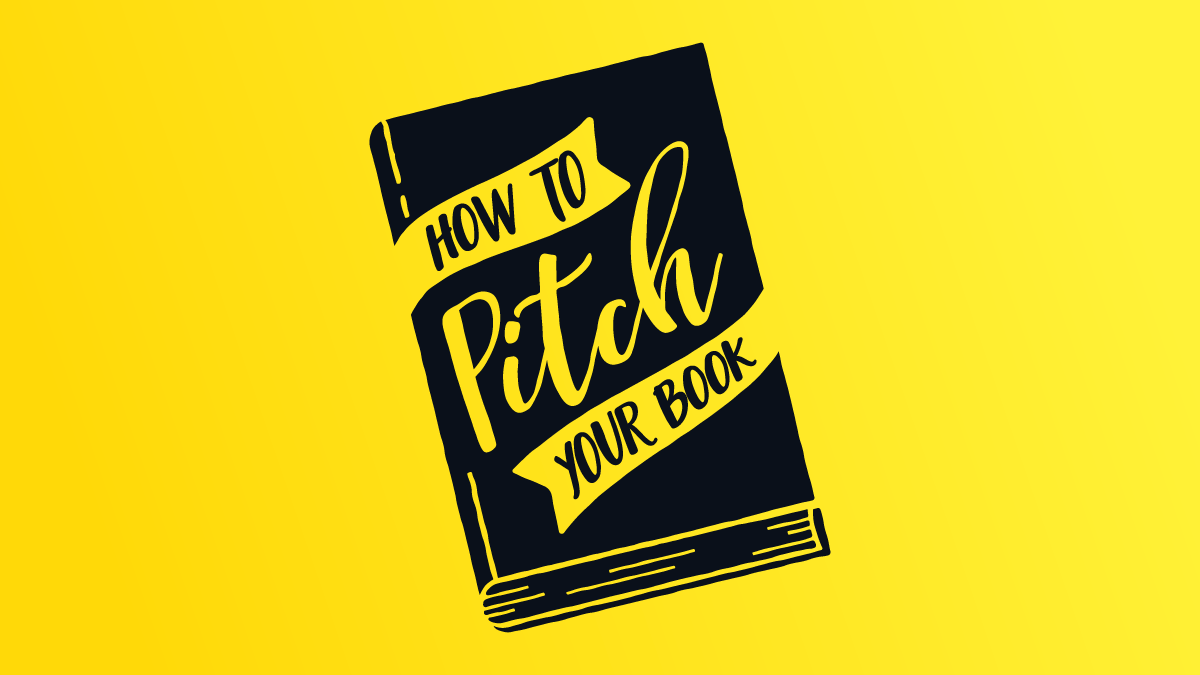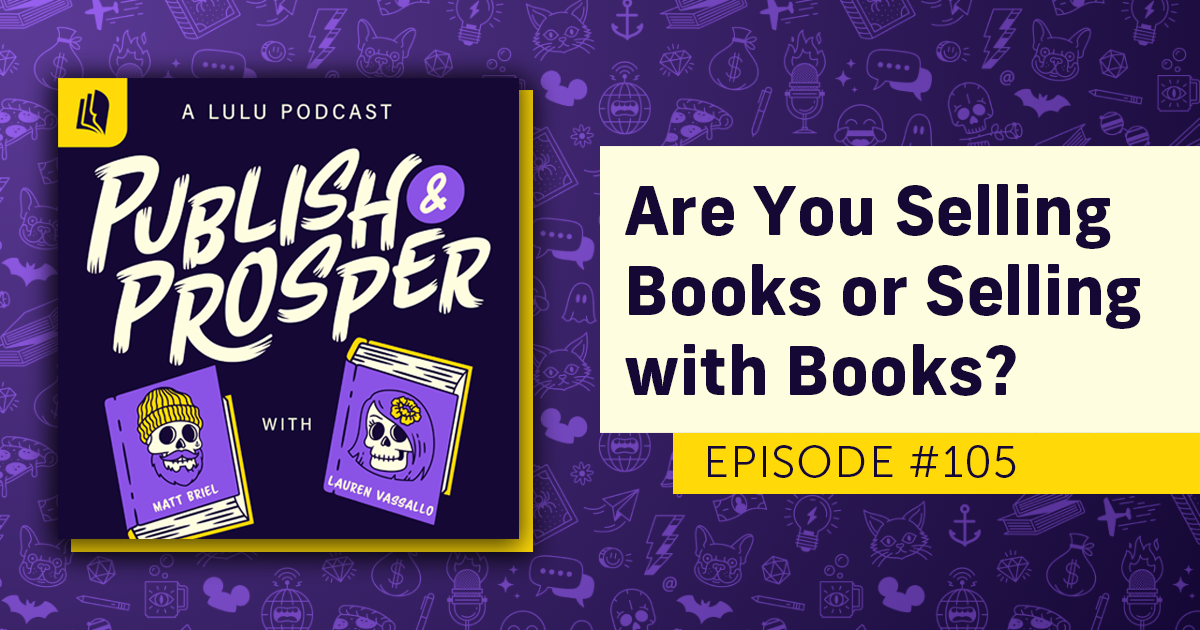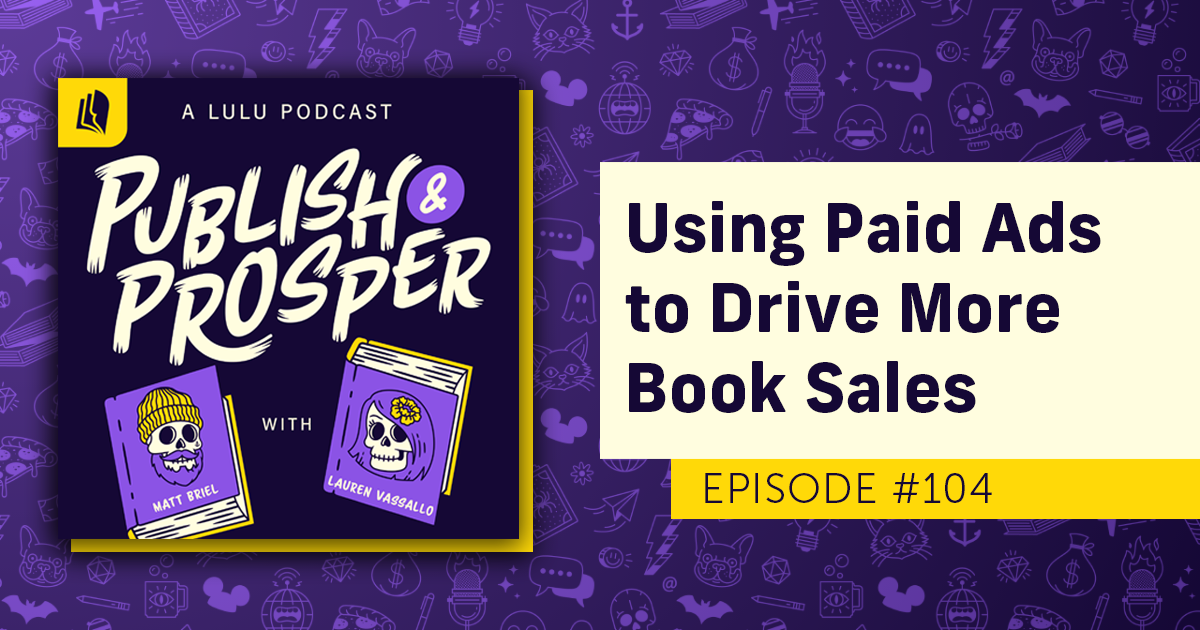How to Pitch Your Book for Earned Promotion
One of the best things about the publishing industry is that it is rife with opportunities to share and promote your book. Earned promotional opportunities like book reviews, author events, guest blog posts or author features, local news interviews, etc. are an incredible way to promote your book and your brand to a preexisting audience that you might not have access to on your own platform.
The question, then, is how do you earn those opportunities?
Well, you start by pitching your book to appropriate people or outlets! And if you’re not sure how to do that…you start by reading this blog post.
The What, Who, Why, and When of Pitching Your Book
What Is a Book Pitch?
There are many different types of pitches and many different ways you can pitch your book throughout your publishing journey. Ultimately, no matter what style of pitch you’re using, it all boils down to one simple function: a book pitch is a marketing tool to persuade somebody to read or promote your book.
A key distinction to note here is that I said the purpose of a pitch is to persuade somebody to read or promote your book, not to buy it. This distinction is important because of the who and the why:
Who Am I Pitching My Book to (and Why)?
Maybe a more important question is “Who am I not pitching my book to?”—you are not pitching your book to potential buyers or readers. A pitch, in this capacity, is not a sales tool. You can use some of your pitching tools (we’ll get to that) to help you sell your book, but the primary purpose of a pitch is to earn marketing and promotional opportunities for you and your brand.
Think of it like this: you, as the author, are the number one advocate for your book, right? A one-person promotional team sharing your book with the world. A pitch is your way of reaching out to someone else in a professional capacity and saying “Hey, my book is great, here’s why you should join my team and help me promote it.”
So who are you pitching to? If you’re interested in going the traditional publishing route, your first (but certainly not your last) pitch will probably be to an agent, in the form of a query letter. But you’ll also pitch your book—regardless of whether you’re traditional publishing or self-publishing—to many others. Potential book reviewers, bloggers, or influencers can help share your book with their audiences. Other authors and professionals in your industry. Maybe bookstore inventory managers, event coordinators, or panel hosts, if you plan to have a physical presence and not just an online presence.
Basically, anyone who can potentially provide a promotional opportunity for you and your book.

Create Your Book
Use Lulu's free templates to easily create and publish your book today.
When Should I Pitch My Book?
This is probably two separate questions—when in my publishing process should I pitch my book, and when should I capitalize on an opportunity to pitch my book?
The ideal time to reach for earned promotional coverage for your book is the window of time between finishing your book and publishing your book. You don’t want to jump the gun and ask for a promotional opportunity for a book you don’t have yet, right? Then what happens if the person you’re pitching says “Sure, I’d love to, send me a copy!” But many of the opportunities you might be pitching your book for – a review, a cover blurb from another author, coverage on a blog or local news outlet, a bookstore event – will provide marketing content and opportunities that will help you launch your book.
Of course, that doesn’t mean you’re limited to only pursuing opportunities within the months surrounding your book launch. If you see an opportunity to pitch for some coverage after your book has already been published, take it! But do ask yourself a few questions before you start:
1. Is This a Solicited or Unsolicited Pitch?
Namely, is the person or outlet you’re pitching currently asking for content, or are you reaching out cold in the hope that they might consider you? For example: if we say “Hey, we’re looking for books highlighting the LGBTQ+ experience to share for Pride in June, if your book applies please email us!” then we are asking for content and your pitch is solicited.
However, if you just email us out of the blue and say “Hey I’d like you to share my book on Lulu’s website,” that is an unsolicited pitch. Which is not necessarily a bad thing! It may just involve a different approach.
Some outlets that you may pitch your book to—mostly publishing-specific outlets like book reviewers, bloggers, and influencers—may have submission guidelines listed with their contact info. Be sure to follow those guidelines. And if an outlet says they are currently closed to submissions or pitches, do not pitch them.
2. Is My Book or Brand Relevant to the Person or Outlet I’m Pitching To?
If you find an opportunity that you believe is a good fit for your book or brand, make sure you are clear about that in your pitch. If your book is not relevant to the person or outlet you’re considering pitching to then you should consider an opportunity elsewhere.
What makes your book or your brand relevant? There are obviously many things that could make you or your book relevant (or irrelevant) to a particular opportunity. Some things to consider:
- Does your book fit their audience?
- Is it in line with other content they have shared?
- Is your brand a good fit for their brand?
- Was your book published within the last two years?
Pro tip: if you answer “no” to two or more of the above questions, or if you have to really stretch to answer yes…find an opportunity that better fits your book. I know, I know, you miss 100% of the shots you don’t take, but you also can’t cross a bridge you’ve already burned down. There is no point in wasting an opportunity to promote your book now that you might be better suited to later. Devote your time and energy toward pitching your book to outlets and people who will be receptive to it.
Tools To Help You Pitch Your Book
Whenever you’re reaching out to pitch your book, consider what information the outlet in question will need. Of course, it will vary depending on the outlet and opportunity. A potential bookstore signing will want very different information than an online book blogger, for example. In some cases, the outlet or person in question might have clear guidelines on what information they want you to include in your pitch, other times you’ll have to make your best educated guess.
Rather than reinventing the wheel every time you want to pitch your book, I would highly encourage you to put together a doc on your word processor or note app of choice for an easy-access cheat sheet of all your relevant pitching material. What should you include in that doc? Here are some ideas:
Cover Copy
There are a lot of different names for this text—cover copy, back cover blurb, flap copy, book description, summary, etc.—that all boil down to one definition: a sales pitch for your book that should sound interesting and represent what’s in the book without giving too much away. The cover copy is the bait you’re using to lure potential readers in, so you want to make sure it’s an enticing bite of your book.
This is the description that will appear on your book’s product page in any online bookstore, and the description that you should include on the back cover or inside cover of your book. If you need help writing your cover copy I would recommend checking out this post on How to Write a Book Description.
Synopsis
Your cover copy is a sales pitch designed to hook your readers, right? So you won’t give away a major plot twist, or spoil the ending, or share all your tips and tricks in the description… you want people to actually read the book to find out what happens or what you have to share.
Your synopsis, on the other hand, is a more complete summary of your book’s contents. You wouldn’t necessarily want to include a synopsis in your first pitch, but if the person or outlet you’re pitching writes back and says “Yes, I’m interested in featuring your book! Can you give me a summary of what it’s about?” then this synopsis might be helpful to have handy.
A synopsis can also be useful to have on hand if you’re contracting a cover designer, an editor, a marketing team, etc., so you can give them a good idea of what your book is about!
Elevator Pitch
An elevator pitch is a brief, persuasive speech that you use to spark interest in your book. A good elevator pitch should last no longer than a short elevator ride of 20 to 30 seconds, hence the name. You want your elevator pitch to cover the key points of your book in two, maybe three sentences, and entice your listener to want to know more.
For some absolutely fantastic examples of modern elevator pitches, check out PitchWars and the hashtag #pitmad on Twitter. Aspiring authors looking for agents will pitch their books in a single tweet, which means they have 280 characters to sell a potential agent on their book. Seriously, it’s a masterclass in writing an elevator pitch, I highly recommend you take a look.
You can also check out this blog post with tips for crafting your elevator pitch.
Comp Titles
How many times a day do you use comparison as a pitching tool, maybe without even realizing it? “You love Lord of the Rings and Game of Thrones,” you tell your friends, trying to convince them to finally watch The Witcher. “Spindrift is like La Croix but with a stronger flavor.” “They sound like folklore-era Taylor Swift but with a male lead singer,” etc.
I cannot recommend strongly enough how useful a list of comparison or comparable titles will be to your marketing efforts as a whole. If you can tell people “It’s like The Life-Changing Magic of Tidying Up but for tidying up your internal mindset instead of your external living space,” then you’ve just explained your book in a single sentence. Make a list of three to five titles that you can comfortably and confidently compare your book to. And no, they don’t just have to be book titles! Feel free to mix your media—“It’s Stranger Things meets Salem’s Lot, but set in Brooklyn instead of a small town,” totally works.

Your Free Lulu Account
Create a Lulu Account today to print and publish your book for readers all around the world
How Do I Pitch My Book?
As I’ve mentioned, the specifics of how you pitch your book will vary dramatically based on who you’re pitching your book to and what event you are pitching your book for. A query letter to a potential agent, for example, will look very different from a pitch to a bookstore for a signing, which will look very different from a pitch to sit on a panel at a conference, and absolutely none of those would look the same as a pitch for media or blog coverage.
However, that is not to say that we can’t at least give you a few pointers on how to craft a generic pitch that can be customized to best fit the individual circumstances! Start with the structure outlined below—basic information, book description, brand description—and customize from there. Remember to keep it short and sweet—each of these sections should only take up 1-2 sentences of the body of your email.
Include the Basic (and Most Important) Details
We get emails fairly often from authors asking us to feature their book… and sometimes that is literally all they say. “I would like my book to be included as a featured author,” and that’s the whole email. No author’s name, no book title, no link to the book – the only information we have is the email address the request came from.
Spoiler alert: it’s impossible to promote a book when you don’t know what book you’re supposed to be promoting!
So no matter what you’re pitching for, or who you’re pitching to, you should make sure you include the following information:
- Your Name (and, if you publish under a different name, your author name)
- Book Title
- Publication Date
- Genre
- Formats Available (Paperback, Hardcover, Ebook, etc.)
- Buy Links or Links to Your Author Website
Note, of course, that you don’t have to include these as a bullet-point list. You can work them into your pitch however you like, in whatever way seems appropriate. And don’t forget about your email signature! You can (and should) include things like buy links, your author website, and your social media in your signature.
Describe Your Book
The extent to which you describe your book is entirely dependent on the situation you’re pitching for, but as a general rule of thumb: keep it short. This is an excellent place for your elevator pitch. Remember that you do not need to go into great detail about your book in this initial pitch—what you want to do here is get the person interested enough that they say “Okay, I’d like to know more about this.”
When deciding what information to include about your book’s content, ask yourself:
- What is my book’s “hook?”
- What is interesting or unique about my book?
- Does this person or outlet care what my book is about?
That last question is important. As weird – and maybe as harsh—as this may sound, it is not always relevant to what your book is about. Consider, for example, that you are pitching a book signing event at your local indie. Unless the bookstore is a genre store, chances are high they don’t care what your book is about.
They care about the potential for the event to be a success, which has very little to do with the content of your book and much more to do with you as an author and your brand. The same can be true for media outlets like local news, alumni association newsletters, etc.—while they will eventually want to know what your book is about, your primary focus on the initial pitch should be you, not your book. This leads us to:
Define Your Brand
This is your opportunity to explain why they should promote you and your book. Consider some of these questions:
- Why should they care about you or your book?
- Why are you or your book relevant right now?
- Why is your book a good fit for the outlet you’re pitching?
- What makes you and your book stand out from every other book they’ve seen?
Obviously, you don’t have the space or time to answer all of them, but they can still help to inform your approach.
If this pitch is solicited, you should already know what information you need to share—this is where you say “Hey, heard you were looking for books that deal with mental illness, check out my memoir on struggling with ADHD in a neurotypical world.”
If this is an unsolicited pitch, this is where you explain why your book or your brand is a perfect fit for promotion on this outlet.
This, out of all of your pitch, is your moment to shine. You’ve hooked them with your elevator pitch, now sell them on you. You know you’re a good fit for this promo opportunity—let them know too!
Quick Tips for Crafting Your Pitch
Ultimately, pitching your book is a variable process that will change depending on your book’s content and genre, your author platform, and the opportunities you’re pitching for. But no matter how you craft your pitch, there are a few universal things to keep in mind.
1. Keep It Short and to the Point
Chances are good that the person you’re pitching to gets anywhere between a few dozen and a few hundred pitches a day. They don’t have time to read your five-paragraph essay on why they should promote your book. Keep your pitch short, sweet, and to the point.
Remember that this is a first contact, not an info dump. You’re asking someone out on a date, not proposing marriage at first sight. Woo them with a pitch that makes them want to get to know you better, then go forward from there.
2. Do Your Research
Many of the people and outlets you’re pitching to will provide submission guidelines somewhere on their website or social media. Look for them and follow them. I cannot emphasize this enough—I know plenty of people who will outright delete an email without reading a single word further if you don’t follow their submission guidelines.
You should have already done the research on this person or outlet’s brand, audience, content, etc., but just to reiterate that here: do your research before you waste your time (and theirs) pitching your book to an irrelevant outlet or opportunity.
3. Keep It Professional
This should be a given. You are reaching out to someone in a professional capacity, as a representative of your professional brand, asking them to represent you with their professional brand. Craft an appropriate email, not a quick fragment of a thought you sent from your phone while sitting at a red light. At the bare minimum, make sure you spell their name correctly and use the right titles and pronouns.
Remember that you are asking someone else to donate their time, expertise, and hard-built platform to you and your brand. Not only that, but you are also potentially building a relationship with them that will benefit your author brand far beyond this one opportunity. Make your first impression count.
Most of all, remember this: you’ve done something incredible here—you wrote and published a book! Be proud of your achievement and of your brand, and go out there and get those promotional opportunities that you have absolutely earned. Good luck with your pitches! And hey, want to pitch your book to me for coverage on Lulu’s social media pages? Post your elevator pitch and a link to your book on Instagram and tag @luludotcom! Can’t wait to see what you have to share with us!




